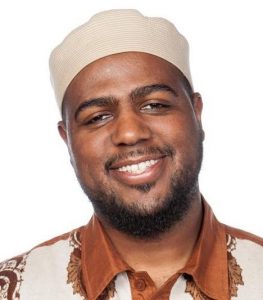Bilal Ansari, Faculty Associate in Muslim Pastoral Theology, has forced a Massachusetts town to reckon with a racist covenant that is still included on property deeds for Williamstown’s Colonial Village neighborhood.
The covenant, introduced in 1939, states that “No persons of any race other than the white race shall use or occupy any buildings or any lot, except that this covenant shall not prevent occupancy by domestic servants of a different race domiciled with an owner or tenant.” While such a convenant has been unenforceable since the passage of the Fair Housing Act in 1968, it nevertheless remains on the books.
In an article about the covenant language published in iBerkshires.com on July 13, Williamstown real estate attorney Stanley Parese said it was possible but unusual for documents in the Registry of Deeds to be altered. He called for a “healthy listening exercise” before taking action.
In response to that proposal, Dr. Ansari wrote a searing letter to the editor on July 14 that addressed Williamstown’s racist legacy in the context of his own family.
This is an excerpt from the letter, which can be read in full at this link.
What do you hear and feel as a non-Black person in a listening exercise? What we hear loud and clear as Black and indigenous people when we hear “Colonial Village” is a settlement erasing indigenous claims of land ownership and thwarting Black immigration north from gaining any land ownership. This is what we hear and see in Colonial Village’s racist legacy when the property deeds continue to declare it a white-only neighborhood. It is an unambiguous conclusion based on the black ink on the deed purposed with the white supremacist colonial project in mind.
This was enforced on my family as Black residents who worked and lived in the basement of Spencer House at Williams College (then Khi Psi House) — a couple with two children looking for housing in Williamstown. This restrictive covenant was only one-fourth of the restrictive system of oppression that knelt on the neck of the Logan family in Williamstown. By the grace of God, Williamstown had another Black family in town, the Harts, because no one else would rent to my Black relatives. They moved from the basement to an apartment with the Harts on Arnold Street near the Mill housing.
I asked my great-aunt and -uncle what they heard and saw Colonial Village as residents and they all say: “Whites-only. We were told as children to avoid going in there because it was unsafe and unwelcoming for Black people.”
So if the residents of Colonial Village want some time to begin listening exercises, I ask them to start by walking across the street to speak to my great-grandfather and -mother buried there who suffered from the legal policies of white supremacy that Colonial Village continues as they keep their hands in their pockets and remain on bended knee.
After the letter was published, Dr. Ansari, who in addition to his work at Hartford Seminary is Assistant Vice President for Campus Engagement at Williams College in Williamstown, was appointed to a new town committee on equity and inclusion.
He also led a march on Colonial Village on July 17. During that event, participants were told that John Barrett, the town’s state representative, would be filing legislation that would allow homeowners to easily change the racist covenant by petitioning the land court. The legislation will be considered during a summer session or during the next legislative session.
Dr. Ansari also called on the town to remove the Colonial Village sign and rename the neighborhood.
“I’m calling for a renaming from the bottom of my heart,” he said. “I don’t care what you name it. But name it something that represents you and not the ones who wrote that nasty deed that forbid people like me.”

 Sign-up now ›
Sign-up now ›